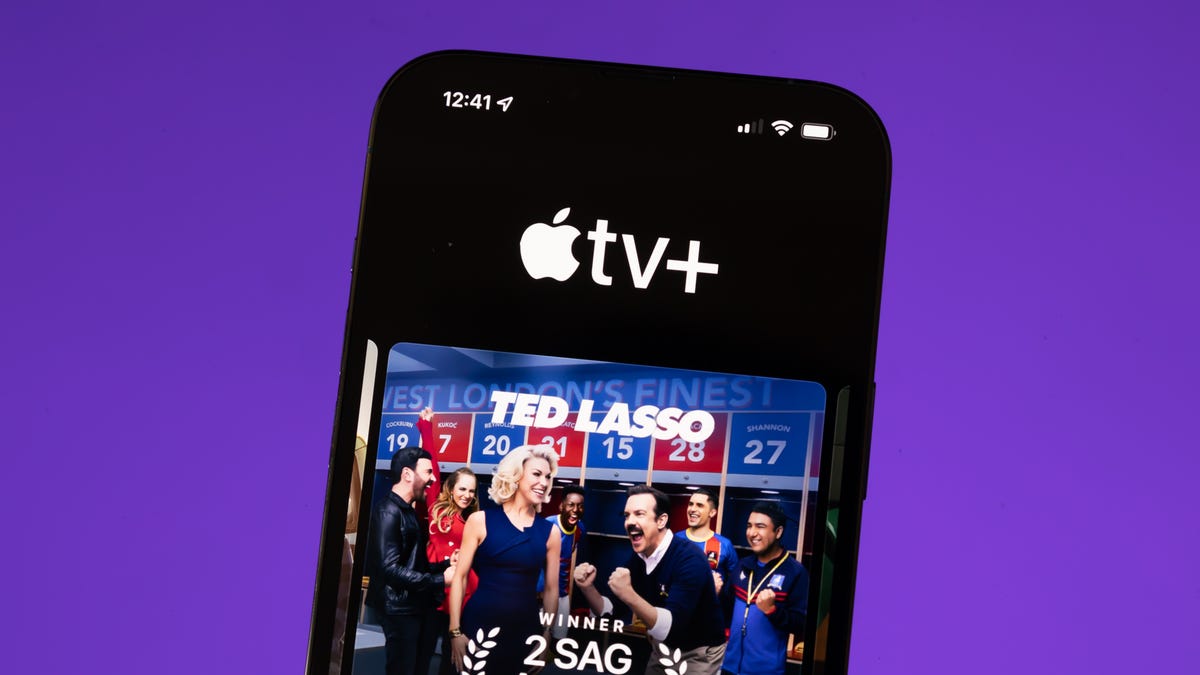Apple Just Quietly Raised Prices for Apple Music and Apple TV Plus
Apple pointed to music licensing costs and Apple TV Plus' larger library for the price hikes, but they'll hit as inflation is already straining wallets.

Some of Apple's services are getting more expensive.
Apple raised prices on its Apple Music and Apple TV Plus subscription services, as well as on its Apple One package that bundles both those services with a few others, marking their first major price increases in the US in years.
Effective immediately on Monday, new subscribers to Apple Music pay $1 more for individual plans, at $11 a month, and $2 more for family plans, at $17 a month. Apple TV Plus, meanwhile, is rising by $2 and will now cost $7 per month.
Apple's bundle service, Apple One, meanwhile, will cost $16.95 per month for an individual, a $2 increase. The Apple One family plan will hit $22.95 per month and its premier plan, $32.95 -- a $3 bump for both. Apple One individual and family plans include Apple Music, Apple TV Plus, Apple Arcade cloud gaming and iCloud remote storage services; premier includes those four and both Apple Fitness Plus workouts and Apple News Plus, which unlocks multiple subscription newspapers, magazines and other news outlets.)
Existing members can expect their bills to go up soon, too. People who already subscribe to Apple Music, Apple TV Plus and Apple One will get a notification about the increases 30 days before they're billed at the higher rate. For most people on monthly plans, that means your membership will be charged one more time at the previous price before it goes up on your next bill.
An Apple spokeswoman cited increased licensing costs and payouts to artists and songwriters for Apple Music's price increase. Meanwhile, she noted that Apple TV Plus had started at a low price with "just a few shows and movies," but now has a much larger selection of "award-winning and broadly acclaimed series, feature films, documentaries, and kids and family entertainment from the world's most creative storytellers."
By comparison with competitors, Spotify's individual premium plan is $10 a month, which is now $1 less than Apple Music. Even with Apple TV Plus' price increase to $7, the video service is still among the cheaper subscription video services: Netflix's most popular plan is $15.50, for example, and Disney Plus will start charging $8 a month for its ad-supported subscription and $11 a month for its ad-free membership in December.
The move marks the latest in a series of price increases among top subscription services as economic instability around the world has led to high inflation. Netflix, Spotify, Disney and even Google-owned YouTube have raised at least some of their subscription rates over the past couple years, though like Apple they haven't all blamed the global economy.
Some of the price increases, such as with Spotify and YouTube, have been focused on family plans, where multiple people benefit from access to the service. Netflix, Disney Plus and Apple, meanwhile, have made their price increases hit more broadly.
It's hard to determine whether people will change their habits in response to the price changes. Every time a service raises prices, it typically has to deal with what's known as churn, or the rate of cancellations. Netflix, for its part, has previously characterized its churn after a price increase as manageable, calling it an "adjustment period" of "slightly higher churn." But shortly after Netflix raised its prices by as much as $2 in January, an unprecedented number of people dropped the service. Earlier this month, the company reported growth again, but not before it promised to change its business by cutting costs and offering a new, cheaper ad-supported tier.
Apple hasn't updated its public Music membership figures in more than three years. Back in June 2019, Apple said its service had 60 million subscribers. Spotify, meanwhile, reported in July that it has 188 million paying subscribers and expected to have eclipsed 450 million total listeners last month. According to music industry researcher MIDiA, Apple holds about 15% of the world's subscription music market; Spotify's share is more than double that.
Apple has never disclosed a subscriber count for Apple TV Plus, but it's generally considered to be a fraction of Netflix's, which had 223 million paying customers around the world as of September. For well more than a year after Apple TV Plus launched in November 2019, most of its viewers watched it free with a free trial promotion that Apple kept extending. Since last year, though, Apple has reined in its free trials and started charging many of the subscribers who'd been freeloading.
The news of the price increases was previously reported by 9to5Mac.
More streaming advice
- 10 Ways to Save Money on Streaming
- How to Cut the Cable TV Cord in 2023
- See More at Streaming TV Insider



